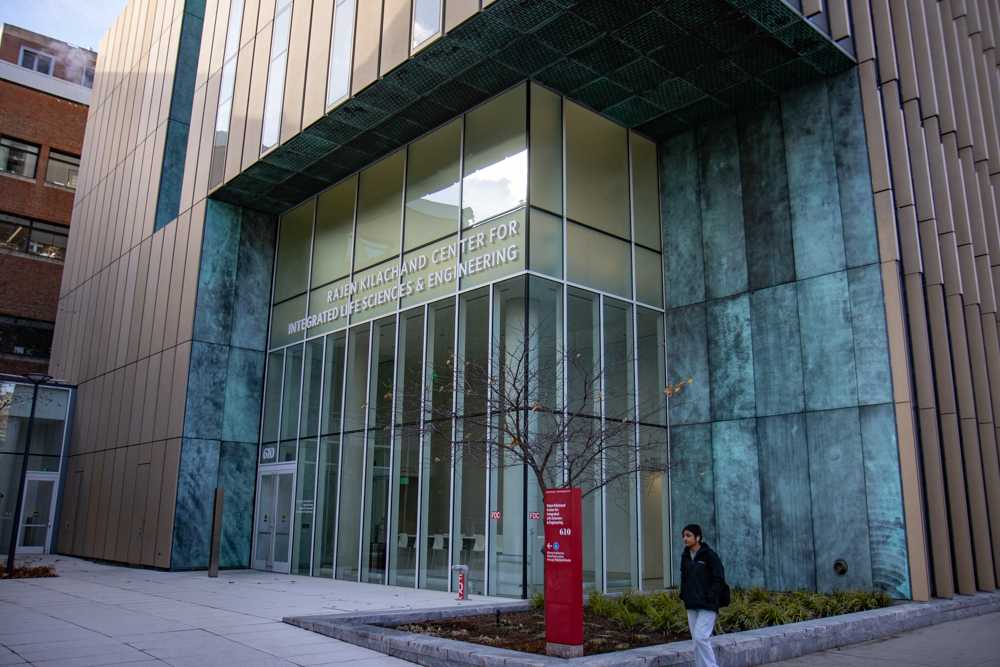Images of coal-filled mine carts and glowing headlamps atop soot-covered faces emerging from a mine tunnel scream Americana. There are many former coal mining sites now operating as museums dedicated to this relic of American heritage, recalling an industrious and dirty-handed past, but scientists, senators and some others are working hard to make clean coal a fuel of the future.
COAL’S COMRADES IN CONGRESS
Supporters of clean coal technology managed to fit $4.6 billion in to the Senate version of President Barack Obama’s recent stimulus bill. The bill, which the Senate Appropriations Committee passed last week and is headed to the floor for a full Senate vote, nearly doubled the amount of money granted to the coal industry in the House version of the bill.
Sen. Robert A. Byrd (D-W.Va.), the longest serving member of the Senate and a powerful member of the appropriations committee, lead the charge to increase the funding. Byrd’s colleague, Sen. Jay Rockefeller, also a West Virginia Democrat, worked last year to include $2.8 billion for the coal industry in the $700 billion Wall Street bailout package.
‘Clean, carbon-neutral coal can be a ‘green’ energy,’ Byrd said in a statement last week. ‘As Congress strives to develop a national energy policy that will break our dependence on foreign oil, it is crucial to ensure that coal, burned in cleaner, more efficient ways, is part of our nation’s diverse energy mix for the future. These investments will help to bolster West Virginia’s economic future.’
West Virginia is one of a handful of states where coal mining is still a bustling industry, but the state is not alone in its dependence on coal: coal-fired plants provide more than half of the nation’s electricity.
Last Thursday, six Midwest senators wrote a letter urging Secretary of Energy Steven Chu to revive funding for FutureGen, an experimental near-zero emissions power plant to be built in Illinois.
‘FutureGen is our country’s best hope for building and operating a near-zero-emission, coal-fired power plant,’ senators from Illinois, Michigan and Missouri wrote.
But coal has become a target of heavy criticism from environmentalists recently, particularly for its contribution to global warming. When burned in power plants, coal releases carbon dioxide, a significant greenhouse gas, along with other pollutants.
TOWARD TECHNOLOGY FOR A CLEANER TOMORROW
Harold Schobert, a professor of fuel science at Penn State University, calls carbon dioxide the ‘800-pound gorilla,’ but says there is also concern about the release of other pollutants, like mercury, when burning coal. Nitrous oxide and sulfur are two other pollutants produced by burning coal but technological advances have drastically reduced their emissions.
Researchers are looking at the possibility of using activated carbon, a substance similar to charcoal, to absorb mercury before it enters the atmosphere, Schobert said.
America has been slow to adopt clean coal technologies for a variety of reasons, according to Schobert. He said the two main reasons are that the cost of any new technology would eventually show up in the electric bills of homeowners, and for the past eight years, the policies of the Bush administration have been ‘profoundly anti-environmental.’
‘It may be that with President Obama and Secretary of Energy Chu, we may see a different emphasis,’ Schobert said.
But Schobert said a third reason, beyond economics or politics, is also possible.
‘Very serious individuals think it’s too late,’ Schobert said. ‘In other words, the magnitude of the problem is such that if even if we did begin deploying technologies immediately, we’ve already injected too much carbon dioxide into the atmosphere that its hard to see why or how they would have much of an impact.’
Scientists are working on several technologies to eliminate carbon emissions from coal-powered plants. One of the most actively researched technologies, and a favorite catchphrase of politicians on the campaign trail, is carbon capture and storage.
CCS is a process in which carbon dioxide is somehow absorbed at coal-fired plants before entering the atmosphere and then injected into the ground. CCS has yet to be attempted on a large scale but projects like FutureGen are gearing up to attempt it.
One basic idea of CCS is to dilute carbon dioxide into saline solutions underground, where the carbon would take on a less mobile form, rendering it unable to interact with the atmosphere.
Although the elimination of carbon dioxide emissions is often the goal of recent ‘clean coal’ ideas, some in the coal industry say that the term applies to all technologies that reduce the environmental footprint of electricity from coal.
‘There are a lot of activists who want to keep the term narrow and use the term just to deal with carbon dioxide,’ Cathy Coffey, spokeswoman for the American Coalition for Clean Coal Energy, said. ‘But that’s ignoring the fact that the term has been used for quite a few years and has a broader concept than that.’
The ACCCE is a non-profit partnership of companies involved with the production of coal for electricity. Coffey said the industry understands that coal cannot meet all of America’s electricity needs but will play an essential part in providing power for years to come.
‘We need all the different fuels,’ she said. ‘We don’t see it as an ‘either-or’ proposition but see it more as an ‘and’ ‘-‘- coal and renewables.’
Clean coal may be a bridge to new, cleaner fuels, but due to America’s level of reliance on it at this point, the bridge could be longer than we think, Schobert said.
EASY ELECTRICITY VS. EARTH’S EMINENCE
Some environmentalists, even with the prospect of new emissions-reducing technology, say that the term ‘clean coal’ is an oxymoron.
‘No matter how much money the coal industry throws at greenwashing reality, the truth is, coal is unclean, dirty, filthy,’ said Vivian Stockman, project coordinator for the Huntington, W.Va.-based Ohio Valley Environmental Coalition. ‘Coal’s dirty when you mine it, dirty when you prep the coal for market, dirty when you haul it to market, dirty when you burn it, dirty when you ‘dispose’ of the ash and it sure dirties up politics.’
Stockman said that for the sake of humanity, fossil fuels must be phased out, and industry must make the transition into cleaner energies as if lives depend on it because, as she said, they very well may. Coal mining jobs can be eliminated by retraining miners and bringing renewable energy research and development into the coalfields, she said.
In August 2007, the Environmental Protection Agency eased regulations on mountaintop removal mining, a process that levels mountain peaks and can pollute streams below if the resulting debris is dumped into the valley.
‘Simply put, mountaintop removal is a completely unnecessary national disgrace,’ Stockman said.
Mining companies dump the debris into valleys below, burying biologically crucial headwaters streams, Stockman said. She said that not only are streams buried and poisoned, but huge swaths of some of the most biologically diverse temperate forests on Earth are annihilated.
Coal, often touted as a cheap and readily available fuel source, has a human toll that has yet to be written, according to Larry Gibson, founder of Keepers of the Mountain Foundation. The cost of human life lost to coal mining accidents and mining-related diseases, such as black lung, is something that coal proponents never account for in the ‘true price’ of coal, he said.
‘Where in God’s name is this energy cheap?’ Gibson said.
Waste from coal mining mixes with rainwater and seeps into the ground, poisoning water supplies and harming people who are not even involved with coal mining, Gibson said.
Gibson said he blames campaign contributions from the coal industry for the way West Virginia politicians make decisions. He said their legislation ignores the state’s environment to help the state’s coal companies.
‘Animals won’t even put their own waste in their own backyard,’ Gibson said. ‘The only creatures who would destroy their own backyard are human beings.’




















































































































Tom S in LA • Aug 3, 2010 at 2:21 pm
Clean Coal is just another urban myth. There is a ‘clean coal’ pilot plant in Florida that the operator wants the State of Florida to indemnify them from any liability. In other words if the Carbon Dioxide they inject in the ground comes back up to the surface and kills people (oh yea, your body absorbs carbon dioxide easier than oxygen), they don’t want to be held liable. Sorry coal companies, but this is just an old mentality rehashed. We used to think if we buried things they just went away. Does anyone realize how many of our old landfills are superfund sites? We need to build real green technology like wind and solar power.